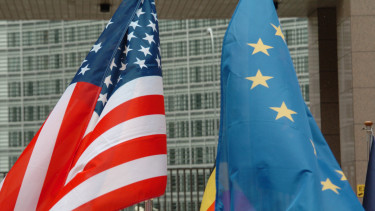EU funds
Hungary provides 2,500 schools with broadband Wi-Fi using EU funds
According to a report in the daily Magyar Nemzet, 75" interactive touchscreen panels will be available in all school districts, with 43% of the 3,000 devices to be delivered to small communities, 32% to major cities, 20% to smaller cities and 5% to towns.
In addition to the above, broadband Wi-Fi access will be built in all schools at a cost of HUF 26 billion, partly covered by EU funding, with the system already up and running in 2,459 schools and 144 more scheduled to join by July. Also, internet access is provided at 1,020 hotspots in the central region.
As a further important element in the development of digital education, a total of 40,000 teachers and caretakers will receive training by 2020, with half of that number to be reached by this September. More than 30,000 have already signed up for the training, which opened in May, and more than 10,000 have already completed it.
The strategy also calls for using IT classrooms to teach other subjects as well, and for reviewing the general IT curriculum every two years.
It mandates teaching typing skills in primary schools either as part of Hungarian language classes or as a new subject. In years three and four, elements of programming such as playful algorithmising, process management or rule-making would also be incorporated, while middle school students would begin learning how to programme robots
Cover photo by Márton Mónus (MTI)
In addition to the above, broadband Wi-Fi access will be built in all schools at a cost of HUF 26 billion, partly covered by EU funding, with the system already up and running in 2,459 schools and 144 more scheduled to join by July. Also, internet access is provided at 1,020 hotspots in the central region.
As a further important element in the development of digital education, a total of 40,000 teachers and caretakers will receive training by 2020, with half of that number to be reached by this September. More than 30,000 have already signed up for the training, which opened in May, and more than 10,000 have already completed it.
Digital education strategy in a nutshell
The strategy, which the government adopted in 2016, aims to provide interactive tools to half of all classrooms, to equip 40% of IT classrooms with 3D-capable devices, to provide a 3D printer for every 500 students, and to have programmable robots in at least one IT classroom in each school.The strategy also calls for using IT classrooms to teach other subjects as well, and for reviewing the general IT curriculum every two years.
It mandates teaching typing skills in primary schools either as part of Hungarian language classes or as a new subject. In years three and four, elements of programming such as playful algorithmising, process management or rule-making would also be incorporated, while middle school students would begin learning how to programme robots
Cover photo by Márton Mónus (MTI)

This article is part of the work programme titled "The impacts of EU cohesion policy in Hungary - Present and Future" which is carried out by Net Média Zrt., the publisher of Portfolio.hu, between 1st April 2019 and 31st March 2020 with European Union financing. The views in this article solely reflect the opinions of the author. The European Commission as the funding entity does not take any responsibility for the use of information presented in this article.










